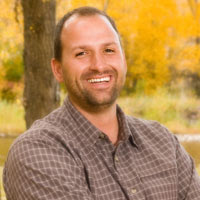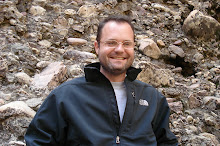
Perhaps you as a parent or an educational consultant are considering the same thing. I was about a year and a half ago.
Mine is a different story, however, which began about 14 years ago at a military base in Atlanta, Georgia. This was my introduction to therapy and needed transition from an academic knowledge of psychology to reality.
My first client, a 40 year old African American woman suffering from depression, left the session somewhat exasperated and remarked that she couldn’t believe that “Donnie Osmond” was her new therapist.This was precisely when I began wearing suspenders and a tie to work every day in an effort to achieve age and credibility. My second client was a couple who came for marital therapy and promptly asked if I was married or had any children. Quick witted, I replied something to the effect that I didn’t need to be shot to know that it would hurt!
This, my valiant attempt to explain that it was not necessary to have first hand knowledge of their situation to be a good therapist, a message understandably obscured by the comparison of marriage to a mortal injury.
Needless to say, I learned to button up more than my oxford after this and listen.
My third client was a bright 15 year old girl who was seen because of oppositional behaviors and underachievement. Having problems getting her to speak I decided to join her in silence, a technique I learned from Robin Williams in Good Will Hunting, not my graduate psychotherapy course.
Instead of paving the way for the dramatic break through, she yelled at me and told her parents I wouldn’t even talk in therapy. They were naturally concerned.
Disillusioned by the status quo and the primitive wilderness model, I was excited to hear that the industry was evolving. Fortunately, I had many choices, but realized after a brief visit that I had found my dream job and quickly made the decision to move across country to join the group.
When I refer to a “primitive” wilderness therapy model, I don’t mean to discount the effectiveness or inherent sophistication of a model which has helped countless numbers of adolescents in beginning to turn their lives around. I simply refer to an outdated traditional model in which adolescents learn basic skills (breaking a fire) while backpacking around a restricted area, sometimes far away from civilization.
Aspiro’s adventure therapy model combines the benefits of the traditional wilderness experience with overwhelming mastery experiences - climbing 200 feet off the ground, free rappelling a 150 foot arch, paddling a class 4 rapid, summiting a 13,000 foot peak, building ice caves, skiing, snowboarding and mountain biking.
And best of all, I’m right there with them.
It was here though, floating down the Green River that I knew I had shed my suspenders for good, in this place without walls, florescent lighting or plaques. I was no longer just an authoritarian but a participant, paddle in hand. It was in this place and many others since that I noticed the resistance I had encountered in a traditional setting was no longer there or significantly diminished. Suddenly the clients were negotiating their way through tricky situations, ones I didn’t read about in an intake report but was observing in the moment.
They were there, right before my eyes, pushing themselves, interacting with other students and all the time humbled by nature. Not only were we collaborating in therapy but together we had accomplished something significant by days end. The students were building confidence and learning real skills through mastery experiences. They were more alert and receptive from the adventure and the novelty of the environment, a benefit also shared by myself. Every week I knew that when I saw my student, he/she would have a story to tell me, a story of struggle and accomplishment. This was the same story I heard a year later from the student I shared a paddle with my first day. He had continued his adventure in Costa Rica, drug free, now a high school graduate and using the same skills he had learned a year earlier at Aspiro.
This is by far the coolest place I have ever worked and I appreciate all the support I have received from our staff, my students and the many parents and consultants I have worked with since joining Aspiro.







No comments:
Post a Comment